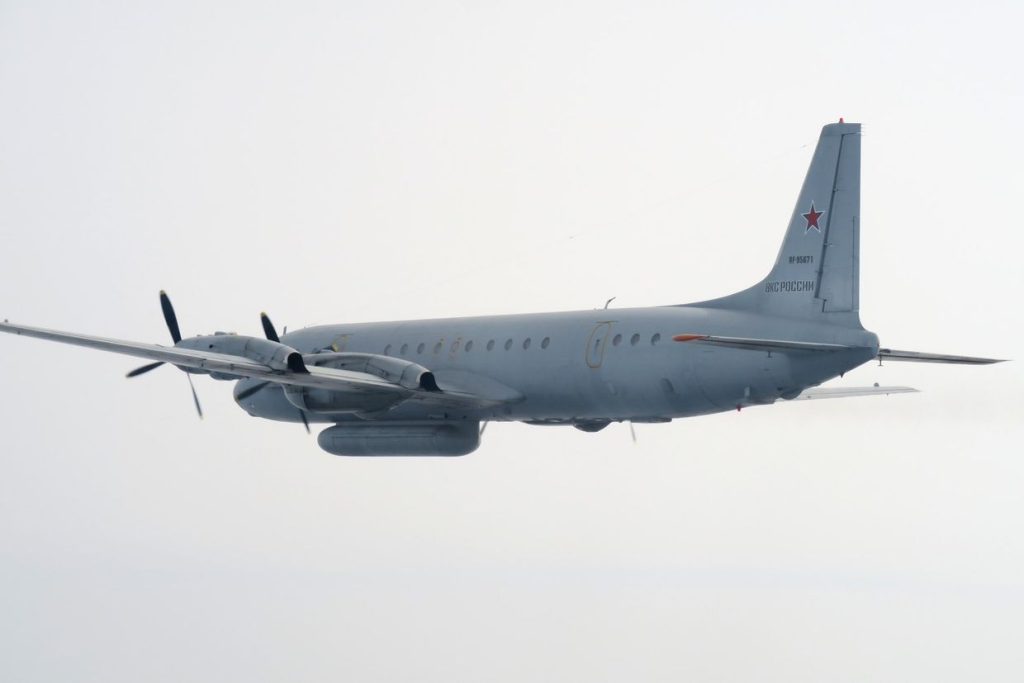The Swedish Air Force, in collaboration with German fighter jets, intercepted a Russian Il-20 reconnaissance aircraft near the Swedish coast in April, according to a statement from the Swedish military. This incident occurred as part of ongoing incursions by Russian military aircraft into NATO members’ airspace, with the Il-20 being identified southeast of Blekinge in the Swedish flight information region. Germany’s Air Force had also recently scrambled its jets to intercept a Russian Il-20 flying over the Baltic Sea without a transponder, raising concerns about the safety of air traffic in the region amid Russia’s aggression in Ukraine.
The war in Ukraine has led to heightened tensions in the region, prompting Western nations to bolster their military presence along NATO’s eastern flank to protect member states bordering Ukraine, such as the Baltic states and Poland. Poland, in particular, has witnessed multiple instances of Russian missile violations of its airspace, prompting the scrambling of fighter jets to intercept the intruding aircraft. In one such incident, Polish jets did not shoot down a Russian missile that briefly entered its airspace, as it posed a potential danger to civilians and would eventually circle back to Ukraine. These developments underscore the ongoing threat posed by Russian military activities in the region.
Various NATO member states have reported intercepting Russian military aircraft in international airspace in recent months. In February, the French armed forces intercepted a Russian Il-20 reconnaissance plane off the coast of Estonia, while the German Air Force reported a similar incident near the Baltic Sea island of Rugen in January. These confrontations highlight the challenges faced by NATO forces in monitoring and responding to Russian military activities near their borders. Moreover, Ukraine’s Air Force successfully shot down a Russian Su-34 fighter jet in February, marking the seventh Russian military aircraft downed by Ukraine in just one week.
The escalating conflict between Russia and Ukraine has raised concerns about the potential for further provocation and aggression in the region. Russia’s incursions into NATO airspace have prompted swift responses from alliance member states, with increased deployment of aircraft, ships, and troops to deter any further encroachment. The strategic importance of protecting NATO’s eastern flank has become a top priority for the alliance, as evidenced by the recent incidents of Russian military aircraft entering airspace near member states. In this volatile environment, maintaining vigilance and readiness is crucial to safeguarding the security and sovereignty of NATO allies.
The ongoing confrontations between NATO forces and Russian military aircraft underscore the evolving nature of security challenges in the region. The ability of NATO member states to effectively monitor and intercept Russian aircraft highlights the alliance’s commitment to defending its borders and deterring aggression. As tensions continue to simmer in Ukraine and the surrounding region, the need for coordinated and decisive action by NATO remains paramount. By supporting independent journalism and staying informed about these developments, individuals can contribute to the collective effort to uphold democracy and peace in the face of external threats and aggression.
In conclusion, the interception of Russian military aircraft near the Swedish coast and other incidents involving NATO member states underscore the complex security dynamics in the region. The ongoing conflict in Ukraine has heightened tensions and raised concerns about potential escalations, prompting Western nations to bolster their defenses and remain vigilant against Russian aggression. By supporting independent journalism and maintaining an informed perspective on these developments, individuals can contribute to the efforts to uphold democratic values and protect the sovereignty of nations in the face of external threats. The resolve of NATO allies to defend their borders and deter further provocations reaffirms the importance of a unified and coordinated approach to ensuring peace and security in the region.


